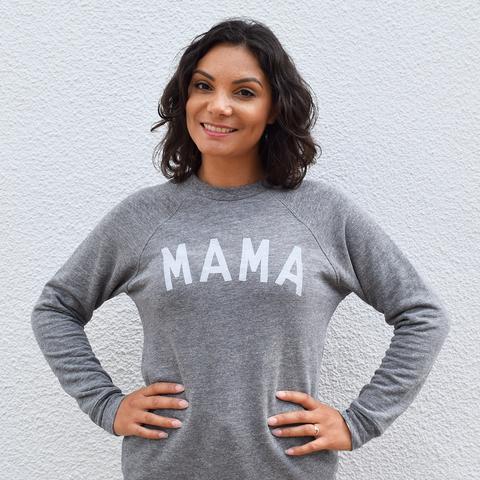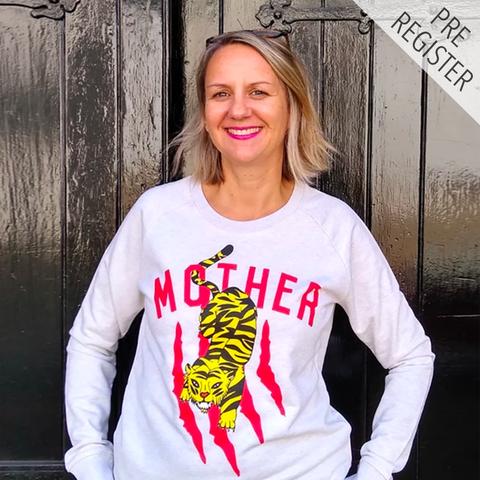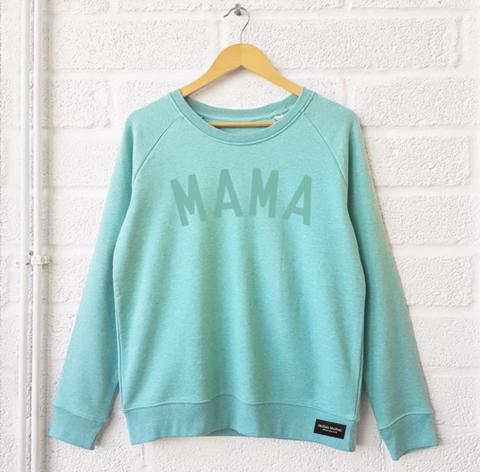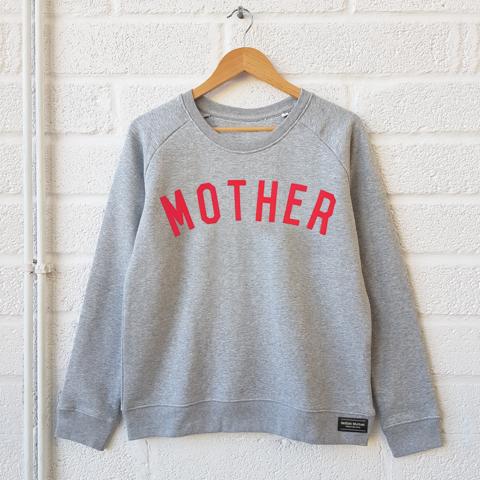You don’t have to choose between discipline and empathy – in fact you need both
1
I have the best intentions to be a good parent. I start the day ready to be supermum, ready to be positive and patient and say the right thing, but when no one listens, the shoes don’t go on, my son is mean to his sister . . . I just lose the plot.
A mum of two little kids said this to us one day. Well-meaning and thoughtful, she was trying her best to be the parent she’d always envisioned she’d be, but every day she felt as if she was falling short. The negative tone, nagging, and power struggles in the house reached a breaking point one
SelfishMother.com
2
afternoon, when she grabbed a dollhouse and threw it out the back door in frustration. Her kids were horrified and so was she.
As therapists, we hear dilemmas like this every day in our groups and private practice. These are loving mums and dads who want the best for their kids. They want the family to be close, but instead of fostering harmony and collaboration they often feel like drill sergeants, issuing no’s, yelling, and time-outing—or pleading, negotiating, and ultimately feeling like their kids run the show.
What we realised is that
SelfishMother.com
3
these dilemmas actually happen for a good reason, which is that empathy is on the rise. Parents are aware of how important it is to be connected, understanding, and warm to their kids. Decades of research has shown that these natural instincts to comfort and listen lead to stronger relationships, higher achievement, and lower anxiety and depression. Parents have been told to be positive, that they’re “not supposed” to yell, bribe, or threaten, and that traditional actions like spanking and punishments are detrimental.
The problem is that, in
SelfishMother.com
4
some ways, this has created a vacuum for parents, in which the standard tools have been taken away, but not necessarily replaced with something tangible. Mums and dads have the best of intentions to be kind and empathic but end up feeling indulgent and so frustrated that they eventually resort to yelling and punishing after all.
In our practice, we’ve seen a clear need for a balanced approach to discipline (from the Latin word, disciplina, or “teaching,” not punishment), one that is both empathic and effective. The journey to figure out what
SelfishMother.com
5
this might look like was the inspiration for our book, Now Say This.
It hasn’t always been straightforward. You may have noticed: parenting topics can be polarising. The subject of discipline has a real either/or perception problem. One side swears by strict rules and consequences for “bad behaviour” and believes that permissive parenting leads to unruly, entitled kids. The other side thinks that empathy and warmth are the key to teaching, and that very strict discipline causes kids to fear, rather than trust, their parents. We see these
SelfishMother.com
6
“discipline wars” every day in our work with families—sometimes even within the same family!
Whichever camp they’re in, though, most parents tell us that something is missing. When they’re very strict, they end up feeling guilty and worry they’re missing a deeper connection to their kids. When they try to empathise and be flexible, they often feel ineffective and resentful. It’s no surprise that more than 70 percent of parents say that discipline is the hardest part of raising a child.
Rather than choosing one side, research tells us
SelfishMother.com
7
that the best outcomes and highest satisfaction in families come from choosing both. Many other clinicians and scholars have written about empathic parenting and delved deeply into the theory and science that support this way of being with our kids.
So how do you begin to combine discipline and empathy? In order to have both, we start by taking our clients back to some simple but profound premises about children:
Your child is capable.
She wants to listen and learn.
He’s wired for empathy.
She wants to help.
He wants to feel
SelfishMother.com
8
like an important part of your family.
You’re on the same team.
When we show our mums and dads this list, some nod as if to say, “of course,” while others shake their heads in disagreement (still others crack jokes). But not only are these statements true—as shown by decades of child development research and clinical experience— they dramatically change how you interact with your child on a daily basis, including in difficult moments.
When you adopt these principles, you’ll see how traditional tactics like rewards and punishments
SelfishMother.com
9
do not make sense and actually work against you. You’ll see “misbehaviour” as a sign that your child is working on a developmental skill. You’ll understand how to collaborate with your child, and your job as a parent becomes very clear, logical, and doable.
Heather Turgeon and Julie Wright are therapists the authors of Now Say This: the right words to solve every parenting dilemma, published by Scribe (£14.99)
SelfishMother.com
This blog was originally posted on SelfishMother.com - why not sign up & share what's on your mind, too?
Why not write for Selfish Mother, too? You can for free and post immediately.
We regularly share posts on @SelfishMother Instagram and Facebook :)
Heather Turgeon Julie Wright - 18 Jun 18
I have the best intentions to be a good parent. I start the day ready to be supermum, ready to be positive and patient and say the right thing, but when no one listens, the shoes don’t go on, my son is mean to his sister . . . I just lose the plot.
A mum of two little kids said this to us one day. Well-meaning and thoughtful, she was trying her best to be the parent she’d always envisioned she’d be, but every day she felt as if she was falling short. The negative tone, nagging, and power struggles in the house reached a breaking point one afternoon, when she grabbed a dollhouse and threw it out the back door in frustration. Her kids were horrified and so was she.
As therapists, we hear dilemmas like this every day in our groups and private practice. These are loving mums and dads who want the best for their kids. They want the family to be close, but instead of fostering harmony and collaboration they often feel like drill sergeants, issuing no’s, yelling, and time-outing—or pleading, negotiating, and ultimately feeling like their kids run the show.
What we realised is that these dilemmas actually happen for a good reason, which is that empathy is on the rise. Parents are aware of how important it is to be connected, understanding, and warm to their kids. Decades of research has shown that these natural instincts to comfort and listen lead to stronger relationships, higher achievement, and lower anxiety and depression. Parents have been told to be positive, that they’re “not supposed” to yell, bribe, or threaten, and that traditional actions like spanking and punishments are detrimental.
The problem is that, in some ways, this has created a vacuum for parents, in which the standard tools have been taken away, but not necessarily replaced with something tangible. Mums and dads have the best of intentions to be kind and empathic but end up feeling indulgent and so frustrated that they eventually resort to yelling and punishing after all.
In our practice, we’ve seen a clear need for a balanced approach to discipline (from the Latin word, disciplina, or “teaching,” not punishment), one that is both empathic and effective. The journey to figure out what this might look like was the inspiration for our book, Now Say This.
It hasn’t always been straightforward. You may have noticed: parenting topics can be polarising. The subject of discipline has a real either/or perception problem. One side swears by strict rules and consequences for “bad behaviour” and believes that permissive parenting leads to unruly, entitled kids. The other side thinks that empathy and warmth are the key to teaching, and that very strict discipline causes kids to fear, rather than trust, their parents. We see these “discipline wars” every day in our work with families—sometimes even within the same family!
Whichever camp they’re in, though, most parents tell us that something is missing. When they’re very strict, they end up feeling guilty and worry they’re missing a deeper connection to their kids. When they try to empathise and be flexible, they often feel ineffective and resentful. It’s no surprise that more than 70 percent of parents say that discipline is the hardest part of raising a child.
Rather than choosing one side, research tells us that the best outcomes and highest satisfaction in families come from choosing both. Many other clinicians and scholars have written about empathic parenting and delved deeply into the theory and science that support this way of being with our kids.
So how do you begin to combine discipline and empathy? In order to have both, we start by taking our clients back to some simple but profound premises about children:
Your child is capable.
She wants to listen and learn.
He’s wired for empathy.
She wants to help.
He wants to feel like an important part of your family.
You’re on the same team.
When we show our mums and dads this list, some nod as if to say, “of course,” while others shake their heads in disagreement (still others crack jokes). But not only are these statements true—as shown by decades of child development research and clinical experience— they dramatically change how you interact with your child on a daily basis, including in difficult moments.
When you adopt these principles, you’ll see how traditional tactics like rewards and punishments do not make sense and actually work against you. You’ll see “misbehaviour” as a sign that your child is working on a developmental skill. You’ll understand how to collaborate with your child, and your job as a parent becomes very clear, logical, and doable.
Heather Turgeon and Julie Wright are therapists the authors of Now Say This: the right words to solve every parenting dilemma, published by Scribe (£14.99)
Did you enjoy this post? If so please support the writer: like, share and comment!
Why not , too? You can share posts & events immediately. It's free!
LIST




















